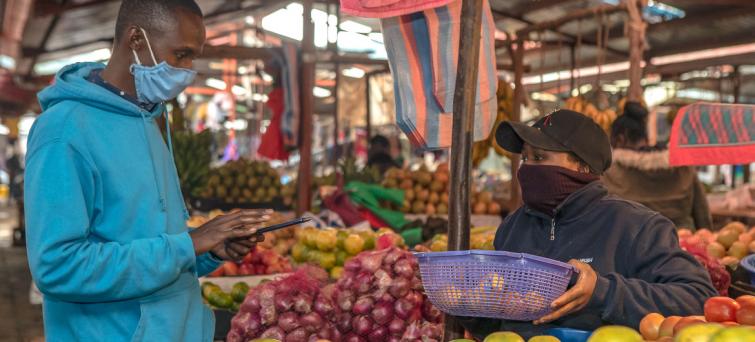
World Environment Day: COVID-19 crisis demands fundamental rethink
New York: The COVID-19 health crisis should be seen as a clarion call to “fundamentally rethink our relationship” with natural ecosystems and shrinking biodiversity, the UN cultural agency chief said on Friday, World Environment Day.
Against the backdrop of bushfires in Brazil, the United States and Australia; locust infestations across East Africa; and a global pandemic, the theme for this year’s commemoration, biodiversity, points out the interdependence of humans and the webs of life in which they exist.
“The pandemic has allowed us to observe what scientists the world over have been saying for years: the interdependence between humanity and biodiversity is so profound that the latter’s vulnerabilities are our own”, said Audrey Azoulay, Director-General of the UN Educational, Scientific and Cultural Organization (UNESCO) in her message for the day.
Over the past year, the environmental crisis has revealed itself in a spectacular and disturbing manner.
“While wildfires ravaged tropical rainforests as if they were arid savannah, dramatically highlighting the effects climate change, the COVID-19 pandemic has cast yet another harsh light on the crisis affecting biodiversity”, she stated, urging people around the globe to forge a broad consensus – both technical and ethical – to “construct a new pact with the living world”.
Pillars of climate change
Every year, in late May and early June, the world spotlights three major international days that that can be considered the systemic pillars of climate change: biodiversity, climate and the oceans.
The UNESCO chief urged everyone to reflect upon how World Environment Day is “a whole, a complex system wherein, climate the oceans and the diversity of living organisms and their surroundings interact sometimes in ways that are beyond our ability to anticipate”.
“This year”, she concluded, “as the world struggles with an unprecedented pandemic, these days resonate more urgently than ever”.
Environmental migration
Meanwhile, in his video message, the Director General of the International Organization for Migration (IOM), António Vitorino, flagged that the environment has always prompted people to move.
He spelled out that disasters displace millions every year and that climate change affects migration patterns the world over.
“Even when societies are slowed down by COVID-19, nothing stops cyclones and floods, the climate continues to change, the environment keeps degrading, and many people are forced out of their homes”, stressed the IOM chief, also noting that other people are “trapped in environmentally fragile regions or cannot resort to usual seasonal agriculture activities”.
He encouraged everyone, “even while battling the global pandemic”, to stay focused on climate change and biodiversity throughout.
“Let’s take action now for people and for nature”, underscored Mr. Vitorino.
COVID-19 and biodiversity
COVID-19 has revealed the vulnerability of global systems to protect the environment, health and economy, the UN Environment Programme (UNEP) said in a compelling video that illustrates how nature can protect us from pandemics.
It explains that zoonotic diseases are transferred from animals to humans, including in all likelihood the COVID-19 coronavirus. UNEP explains that keeping the diversity of nature and animal species intact, protects us against global health crises.
And while a high host species diversity can also reduce disease risk, if in some cases those hosts are removed, a resulting monoculture of animals is created, that are likely to increase their role as disease transmitters.
“We need to invest in a better scientific understanding of how human activity can affect potential future zoonoses”, upheld UN Environment .
“Now is the time to appreciate the vital role of the health of our planet and to take immediate action to conserve nature”.
Support Our Journalism
We cannot do without you.. your contribution supports unbiased journalism
IBNS is not driven by any ism- not wokeism, not racism, not skewed secularism, not hyper right-wing or left liberal ideals, nor by any hardline religious beliefs or hyper nationalism. We want to serve you good old objective news, as they are. We do not judge or preach. We let people decide for themselves. We only try to present factual and well-sourced news.







